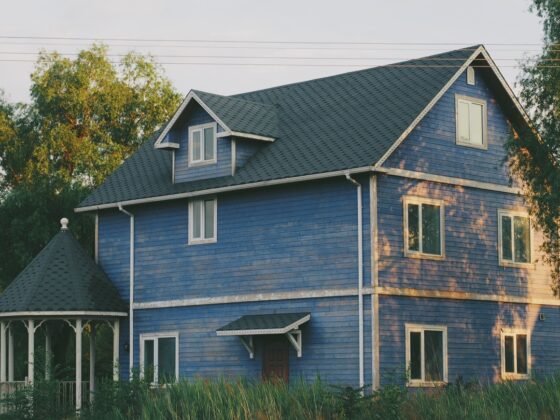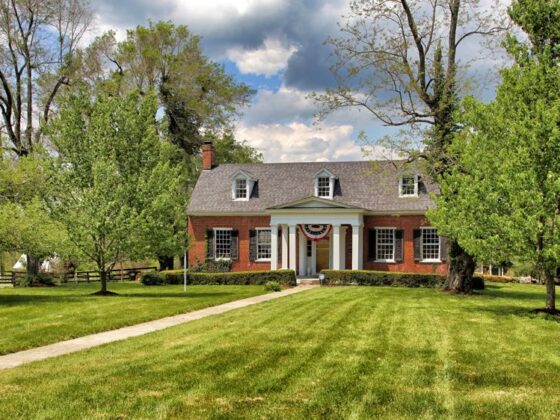Building a custom home is an exciting journey, and one of the most important decisions you’ll make is choosing the perfect lot. The lot you select will not only determine the location of your dream home but also play a significant role in its overall value and livability. In this blog post, we’ll guide you through the process of picking the best lot for your custom home, ensuring that you make an informed decision that you’ll be happy with for years to come.

Location
When it comes to real estate, location is everything, and the same holds true for your custom home. Consider the proximity to amenities such as schools, shopping centres, parks, and healthcare facilities. Think about your daily commute and whether the lot is conveniently located near major roads or public transportation. Don’t forget to take into account the overall neighbourhood and its desirability. A great location can enhance your quality of life and increase the value of your home.
Size Matters
The size of the lot is another crucial factor to consider. Think about how much space you need for your custom home and any additional features like a backyard, swimming pool, or garden. Take into account any zoning restrictions or building regulations that may impact the size of the home you can build on the lot. It’s also worth considering the size of neighbouring lots to ensure a harmonious look and feel within the community.
Orientation and Views
Consider the orientation of the lot and how it will impact the natural light in your home. A lot with a south-facing backyard, for example, will allow for more sunlight throughout the day. Additionally, think about the views from the lot. Do you prefer a lot with a scenic view of the mountains or a serene lake? Or perhaps you value privacy and would prefer a lot that is tucked away from busy streets or neighbouring homes. The orientation and views can greatly enhance your daily living experience.
Topography and Land Features
Take a close look at the topography and land features of the lot. Does it have any slopes or uneven terrain that may impact the construction process or limit your design options? Are there any natural features like mature trees or a natural water source that you’d like to preserve? Consider how the lot’s topography will impact the functionality and aesthetics of your custom home.
Utilities and Infrastructure
Before finalizing your decision, ensure that the lot has access to all necessary utilities and infrastructure. Check if there are connections for water, electricity, gas, and sewer systems readily available. Assess the condition of the roads leading to the lot and consider any potential future developments that may impact the area. It’s important to have a clear understanding of the infrastructure that will support your custom home.
Future Development Plans Research any planned infrastructure upgrades or developments in the area that could affect your property. This could include new roads, utility upgrades, or other public works that might impact your living experience or property value.
Environmental Regulations Be aware of environmental regulations that may influence utility connections, especially if the lot is near protected areas or has unique ecological features. Compliance with these regulations is essential to avoid legal issues and potential fines.
By thoroughly investigating these aspects, you can make an informed decision and select a lot that will meet the needs of your custom home both now and in the future. For more comprehensive guidance, consulting with professionals like builders, surveyors, and local authorities is highly recommended.
Budget Considerations
Lastly, it’s essential to consider your budget when choosing a lot for your custom home. Evaluate the cost of the lot itself and any additional expenses such as site preparation, landscaping, or utility connections. Remember to factor in any potential future costs, such as homeowner association fees or property taxes. It’s crucial to find a lot that not only meets your needs but also fits within your budget.
Conclusion
Picking the best lot for your custom home requires careful consideration of various factors. From location and size to orientation and budget, each aspect plays a role in creating your dream home. By following these guidelines and doing thorough research, you’ll be well on your way to selecting the perfect lot that will serve as the foundation for the home of your dreams.
Frequently Asked Question
Consider factors like commute time to work, traffic patterns, proximity to schools if you have children, and the overall safety and amenities of the neighbourhood.
Evaluate the traffic noise, yard size, privacy, safety, and maintenance requirements. For instance, corner lots may offer more space but could require more upkeep.
Think about the desired front and backyard space, the views from your home, the proximity to neighbours, and the overall layout of the lot in relation to your home’s design.
Zoning laws can affect the type of home you can build, the size, and other regulations. Consulting with a local attorney or a custom home builder can help ensure the lot is suitable for your plans.
Yes, you can explore options like local auction companies, online property auctions, and government land sales, but be prepared to do thorough research on the lot’s history and value.











